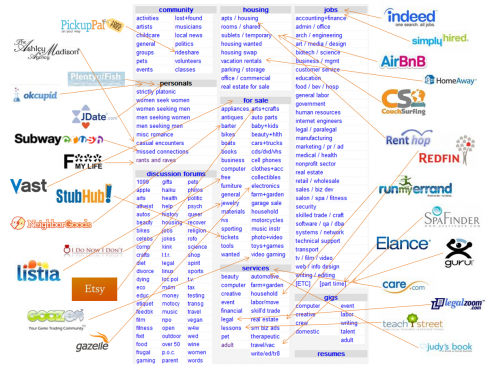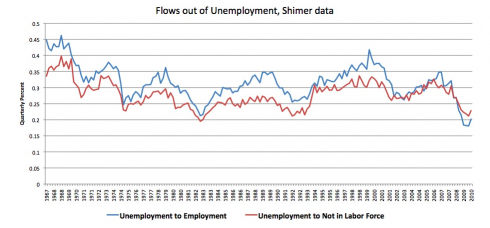If your interested in Network Effects this article from the San Francisco chronicle is worth reading. It outline a few ways you might be able to tackle an incumbent firm that owns the natural monopoly of a strong network effect.
First they might screw up – which we call “bad execution.” This is the usual story for how Facebook managed to take the territory that other earlier social networks had already colonized. Friendster and Orkut are both fine examples of failure of execution. This has other names: lack of vision, lack of follow, etc. etc. I believe that one subspecies of failed execution is the lack of necessary complements – it is damn hard to build a huge internet business without access to the resources that Silicon Valley has and nobody else does.
Secondly it is possible that the current entrant hasn’t managed to cover the ground; in which case you can grab up real estate and later displace them. I suspect that for this theory to work out you need to seize higher ground. Thus Facebook’s happen stance initial market – ivy league schools – turned out to be higher ground that MySpace’s Los Angeles party scene (plus bands & fans).
The third is an old one – vertical specialization. Right from day one people have presumed eBay would face serious competitive threats from more narrowly focused auction sites: antiques say, or fashion, cars, etc. While on balance this tactic does not make sense for eBay it might make sense for other networks biz. And, it goes both ways. For example is there a social gaming business that can exist outside of Facebook – taking traffic away from them – or on the other hand – are all the massive multiplayer games going to collapse into Facebook?
The fourth segment of the article is mostly about Group-on and it’s based on a bogus strawman. Nuff said. And again they don’t seem to understand how Gilt Groupe is a network effect business of a slightly different color.
At one point in the article tries to split hairs about scale effects. They argue that Google’s search get’s better because they can learn by observing the behaviors of their crowd of users. I don’t see that. It is a common delusion – in my experience – that the folks who run these network businesses believe that their fine execution with it’s deep craft knowledge is the primary cause of their success rather than just a necessary part of avoiding the failure of bad execution.
Many wags like to argue the CraigsList is, sooner or later, going to fail due to an or all of these reasons. Possibly, but lordy that prediction is a perennial. Anyhow, the article contains this delightful slide enumerating various attempts to seize some of that territory using vertical specialization (click to enlarge). Of course, the same chart could be made for eBay’s categories.

Gosh that looks like a roll up waiting to happen. I’m happy that the LinkIn IPO is going to make that a lot harder.






